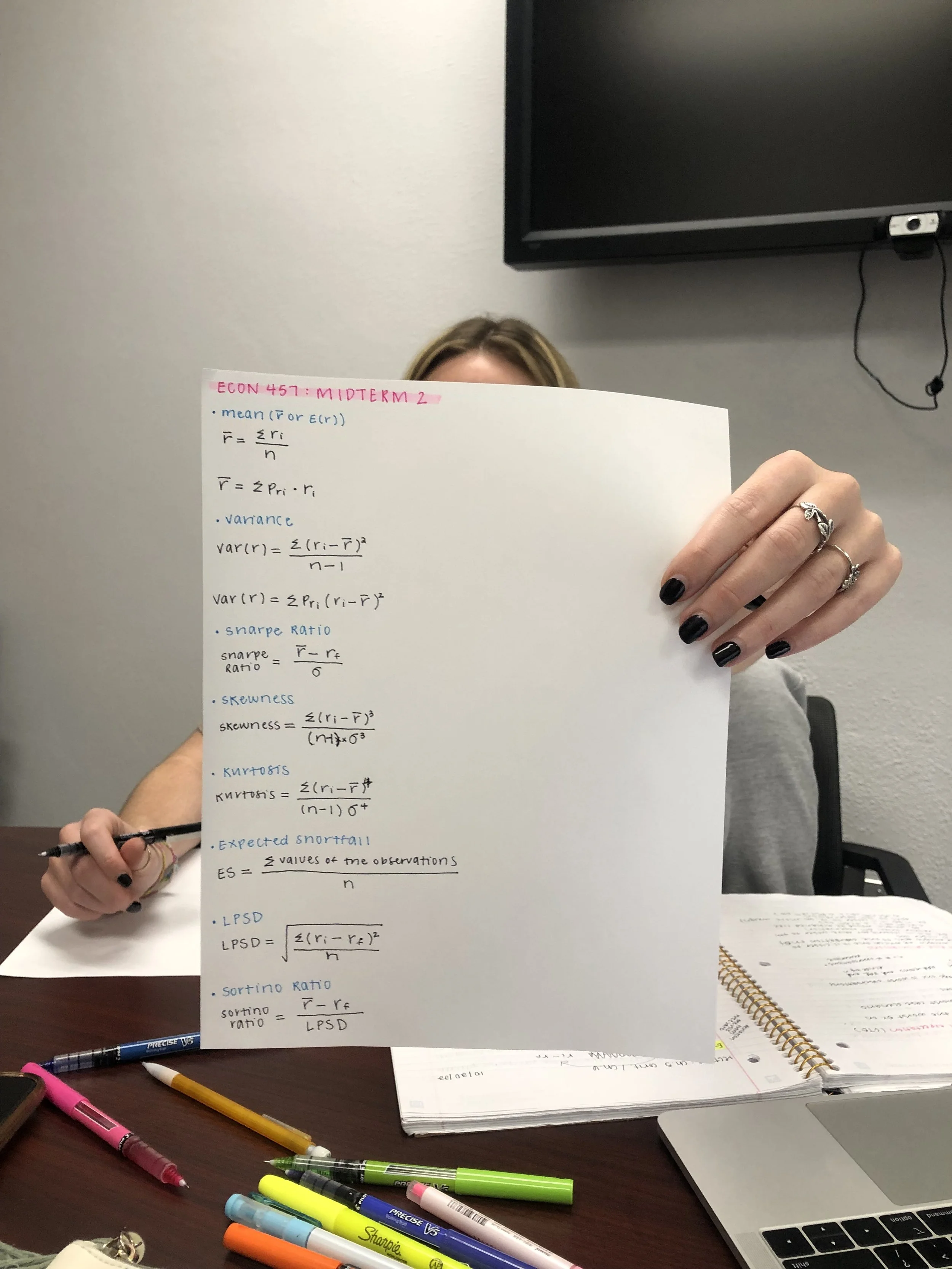Study Tips To Get You Through Midterms and Finals Season
By: Lauren Liang ‘23
It’s that time of the semester again (or is it always that time of the semester?): exam season is upon us. While it might be tempting to just wing it, you can better prepare yourself with these studying tips.
Spacing Your Studying
Spacing material out not only gives your brain time to process and physically consolidate everything you’re studying, but it also gives you a chance to come back and further review the material you struggle with. Bonus: with this studying method, you won’t have to pull an all-nighter and risk questioning all your life choices.
PSA: Cramming actually does work if all you want to do is retain the information long enough to do well on the test! But, if you’re hoping to keep the information in your long term memory with this method, you’re out of luck.
Self-Testing
Testing yourself is one of the best ways to identify and strengthen your competence in the material you’re least confident in. While studying, it’s not uncommon to focus more on the material you’re already familiar with (it is easier to think about, after all). However, this will only give you a false sense of confidence – and confidence is not competence.
When you create (multiple choice) test questions for yourself, you not only have to think of what the right answer is, but the wrong ones as well. This will help you identify the same elements of a question on a real test.
Interleave With Different Subject Matter
Studying the same subject for hours on end is a bore, and our memories are only built to hold so much at once. By switching studying between different subjects in a single studying session, you allow your brain to reset and refresh when you come back to the original material. Plus, you can study multiple subjects at once! This technique changes the way you think, and prevents previously studied material from interfering with material yet to be studied. When you come back to the original material, you can recall where you left off, therefore testing your recall of the material.
Explain the Material to Yourself
When you explain the material to yourself (or pretend you’re teaching it to someone else), you’re forced to think about it in its entirety, and not just skim over the parts you struggle with. This way, you can fill in the gaps in your knowledge so that come exam time, you’re prepared.
Elaborate on the Material
Come up with your own examples, actively think about the material, and form connections to other classes. By doing so, you’re creating more “pathways” for you to mentally access the material. When the exam rolls around, your investment into elaborating on the material will pay off.
Author’s note: I picked up these tips in PSYC 305 (Learning and Memory) with Dave Lavond. If this article interests you and you want to learn more, I recommend taking the course!
Want more from Trojans 360?
Visit Trojans 360 on Facebook & Twitter to stay up to date with more student content! You can also Ask A Trojan an anonymous question, and we’ll try to answer it in a future post. And don’t forget to follow us on Instagram!
Trojans 360 is USC’s official student-run blog. Content created by students, for students.

